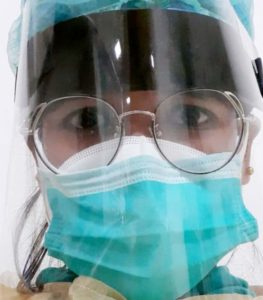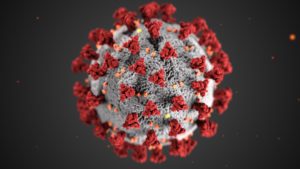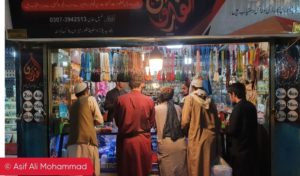By Claire Thomas, Deputy Director of Minority Rights Group, and Aila Gill, CREID Program Coordinator

From the US to the UK, many are outraged over the continued challenge to ensure all essential workers who need Personal Protective Equipment (PPE), receive it. Globally, we see people clapping for their carers, who most understand to be health workers, care home staff, store keepers and several others who are keeping us going throughout this pandemic. But what about public sanitation workers?
From the US to the UK, many are outraged over the continued challenge to ensure all essential workers who need Personal Protective Equipment (PPE), receive it. Globally, we see people clapping for their carers, who most understand to be health workers, care home staff, store keepers and several others who are keeping us going throughout this pandemic. But what about public sanitation workers?
In Pakistan, many will forget about the street and sewer cleaners who have continued to work daily, cleaning hospitals, clinics, streets and sewers without any PPE at all.
Over 95% of Pakistan’s population is Muslim, but there are significant Christian, Hindu and Sikh minority populations too. Adverts in the country are still regularly issued for low paid, low status cleaning jobs which specify “only non-Muslims need apply,” meaning that most of this work is carried out by these religious minority community members.
Even in “normal” times, this is dangerous, low status and unappreciated work. In Lahore, 70 cleaners died in 2019 alone. A BBC report recounts a shocking tale of discrimination and neglect: a 30-year old Christian cleaner is overcome by toxic fumes in a sewer in which two cleaners recently died. Taken to hospital and critically ill, a doctor refuses to treat him until he has been cleaned up, citing the fact that it is Ramadan. He dies in hospital.
Add coronavirus to this already toxic mix, and the result is toxic on steroids: a sweeper class, almost all religious minority, all poor, most uneducated, most unaware of their rights or risks, doing their cleaning work without PPE, and living in congested slums with no possibility of social distancing.
Whilst some doctors in Pakistan have refused to work without PPE, cleaners have heroically carried on despite not having the most basic equipment such as gloves and masks. Pakistan’s Muslim population may not seem to value the lives of these essential workers, but what many have failed to understand is that our response to COVID-19 is only as strong as our weakest link. If cleaners become infected through working in dangerous conditions without PPE, the virus will only spread further throughout the whole of Pakistan’s religious and class riven society. It will not stop at the edge of the informal settlements and it will transcend faith and wealth divisions.
This pandemic might be the time when light is shone on discrimination in all our societies, because as long as the virus is active in any one community or group, the whole world remains at risk.
Original content published in partnership with CREID by MRG (26 May 2020)



